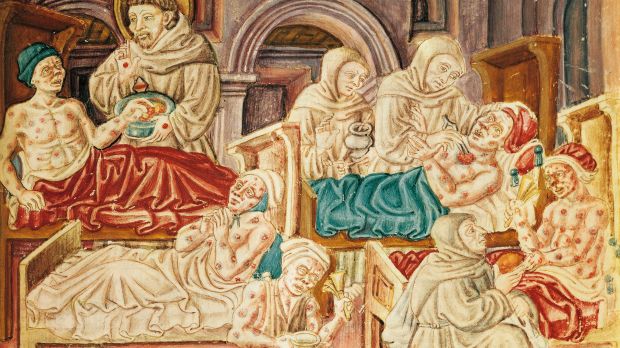Few words in the English language elicit more dread than “going to the hospital.” The phrase conjures up all kinds of images, including surgery, battling disease and even the thought that once you go in, you might not come out.
But considering the origins of the very word hospital might help give a patient a greater sense of hope.
The obvious corollary to the word that’s often overlooked is the word “hospitality.” Indeed, that is where the word hospital comes from, and the specific motivation for that hospitality is Christian charity.
There were certainly “hospitals” in pre-Christian societies such as Greece, Ireland, Mexico and India. But in the Christian era, early efforts to establish houses for strangers, which later took on the job of caring for the sick, were motivated by the Gospel. Christ instructed his Apostles to heal the sick, after all.
At the same time, Christians felt an obligation to be hospitable—St. Paul admonished the Romans to “give the stranger a loving welcome.” Bishops in particular were expected to open their homes to travelers, whether they were Christian or not, and some bishops were even physicians and could provide care for the sick.
“There was thus from the earliest times a well organized system of providing for the various forms of suffering; but it was necessarily limited and dependent on private endeavor so long as the Christians were under the ban of a hostile State,” according to the Catholic Encyclopedia.
After the conversion of Constantine and the legalization of Christianity, the number of Christians increased rapidly. At the same time, new economic conditions led to greater poverty. “To meet these demands, a different kind of organization was required, and this, in conformity with the prevalent tendency to give all work for the common weal an institutional character, led to the organization and founding of hospitals,” the encyclopedia said.
In the Christian East, places caring for travelers and the sick were called xenodochia, from the ancient Greek for “place for strangers.” Eventually, it was apparent that the name was not as catchy as hospital. However, the English language has adopted some Greek names for institutions caring for those in need did survive, such as orphanotrophium, in “orphanage,” and gerontochium, in “geriatrics.”
Throughout the Middle Ages, although hospitals suffered ups and downs, the tradition was kept alive variously by dioceses that ordered the cathedral have a hospital attached to it or religious orders such as the Benedictines ensuring that each of its monasteries have one. In time, confraternities and religious orders, such as the Alexians, were established specifically for the purpose of ministering to the sick.
During the Crusades, chivalric orders such as the Order of St. John established hospitals for pilgrims in the Holy Land.
Perhaps it’s not strange, then, that Pope Francis should refer to the Church as a “field hospital” for souls, or to order that a health station be opened beneath St. Peter’s Square to serve the homeless. Such a practice of incorporating care for the body with care for the spirit goes back to the very founding of the Church.

